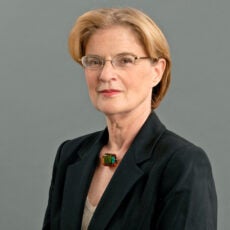Philadelphia’s Energy Transition
The way to reduce GHG emissions is the crux of virtually every energy policy debate right now in the Philadelphia region, and indeed, in cities and regions around the world. Since the IPCC AR4 in 2007, many governments have adopted a policy goal of an 80% reduction in GHG emissions by the year 2050. This goal has been stated in U.S. national policy, in multi-national agreements with the G7 and the UNFCCC, and has been adopted by 16 U.S. states and 37 U.S. cities. At the Paris COP21, 185 nations made pledges (known as Intended Nationally Determined Contributions or INDCs) to take actions calculated to reduce greenhouse gas emissions by a stated amount between 2015 and 2030. These pledging parties represent more than 95% of global GHG emissions. Over 50 percent of the actions embedded in the INDCs rely on local and other subnational governments.
The Center funded a multi-disciplinary team of Penn faculty from Design, Wharton, and Engineering who:
- Reviewed relevant research on city and regional analysis, goal-setting, and scenario-building on GHG emissions reduction and decarbonization policies;
- Designed an approach to estimating a regional rate of GHG reduction based on specified local net benefits.
The need for this critical research grew from a multi-stakeholder process for structured decision-making around Philadelphia’s energy strategy, led by the Kleinman Center and Drexel University over the fall of 2015 and spring of 2016.
Research Team
William Braham
Professor of Architecture, Director of CEBDWilliam W. Braham is a professor of architecture at the Stuart Weitzman School of Design. He is also the Director of the Center for Environmental Building + Design.
Eugenie Birch
Lawrence C. Nussdorf Chair of Urban Research and EducationEugénie L. Birch is co-director of the Penn Institute for Urban Research, Lawrence C. Nussdorf Chair of Urban Research and Education, and chair of the Graduate Group in City and Regional Planning.
Tom Daniels
Crossways Professor, City and Regional PlanningTom Daniels directs the concentration in Land Use and Environmental Planning in the Department of City and Regional Planning. He also administers the Certificate in Land Preservation.
Erick Guerra
Associate Dean for Research, Weitzman SchoolErick Guerra is Associate Dean for Research and Associate Professor in City and Regional Planning in the Weitzman School of Design.
John Landis
Professor Emeritus, City & Regional PlanningJohn Landis is professor emeritus in city and regional planning. His research interests span a variety of urban development topics.
Megan Ryerson
UPS Chair of Transportation, Weitzman SchoolMegan Ryerson is the UPS Chair of Transportation and Associate Chair of City and Regional Planning at the Stuart Weitzman School of Design.
Barry Silverman
Professor of Systems EngineeringBarry Silverman is professor of systems engineering at the School of Engineering and Applied Science.
Susan Wachter
Albert Sussman Professor of Real EstateSusan M. Wachter is the Albert Sussman Professor of Real Estate and Professor of Finance at The Wharton School. She is also professor of city and regional planning at the Weitzman School of Design and she is and Co-director or the Penn Institute for Urban Research.
Research Support
Alon Abramson holds a masters of science in environmental engineering and works as the project manager for energy initiatives at the Penn Institute for Urban Research.
Nasrin Khansari is a post-doctoral researcher in electrical and systems engineering department.
Amanda Lloyd is a project manager at Penn Institute for Urban Research.
Alex Waegel is a post-doctoral researcher at the T.C. Chan Center, where he works full-time conducting research on energy-efficient building modeling.








